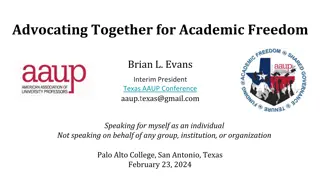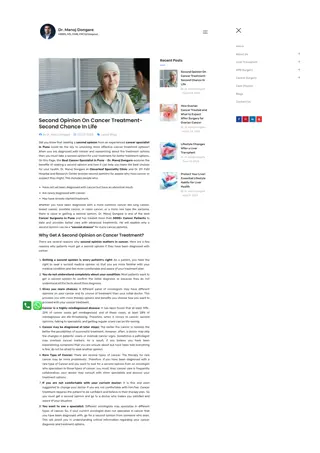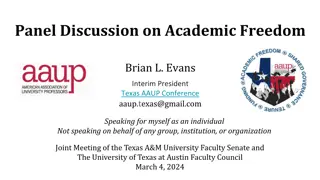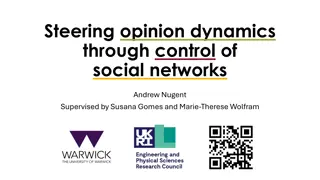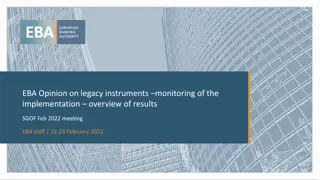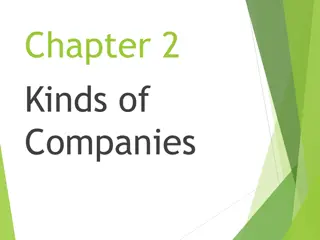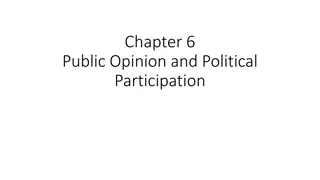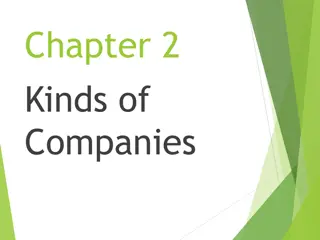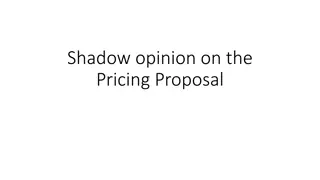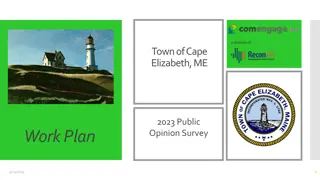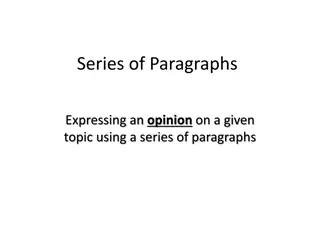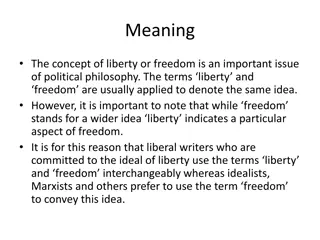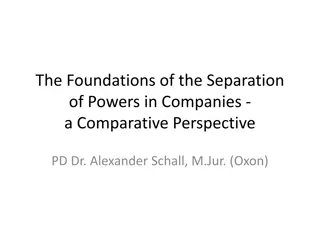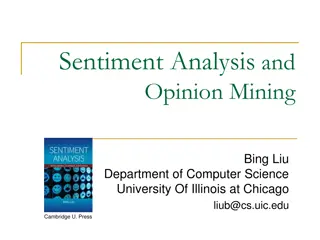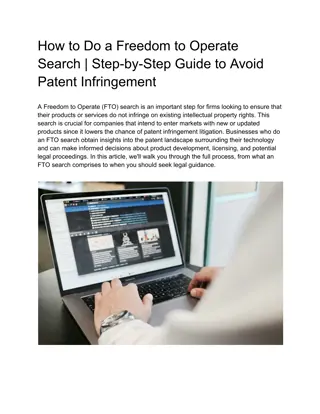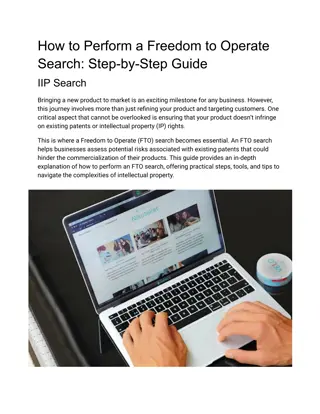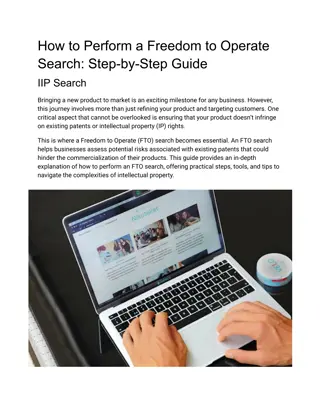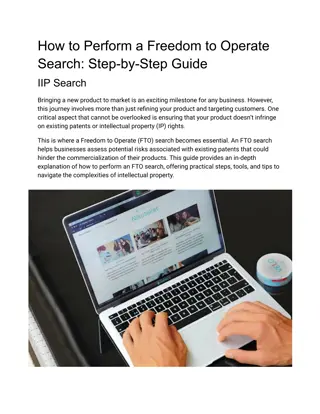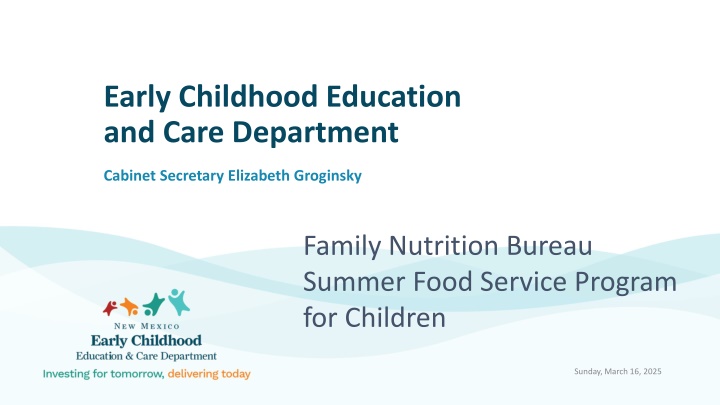
Freedom to Operate Opinion Service for Innovative Companies
This service provides a comprehensive Freedom to Operate (FTO) opinion for companies across various locations globally, offering insights on IP landscape changes, product characteristics, and patent analysis. Trusted advisors at Think IP Strategy guide companies through FTO searches, analysis, and decision-making processes, ensuring a clear path for future investments and market expansions.
Download Presentation

Please find below an Image/Link to download the presentation.
The content on the website is provided AS IS for your information and personal use only. It may not be sold, licensed, or shared on other websites without obtaining consent from the author. If you encounter any issues during the download, it is possible that the publisher has removed the file from their server.
You are allowed to download the files provided on this website for personal or commercial use, subject to the condition that they are used lawfully. All files are the property of their respective owners.
The content on the website is provided AS IS for your information and personal use only. It may not be sold, licensed, or shared on other websites without obtaining consent from the author.
E N D
Presentation Transcript
Early Childhood Education and Care Department Cabinet Secretary Elizabeth Groginsky Family Nutrition Bureau Summer Food Service Program for Children Sunday, March 16, 2025
Claims submitted past the regulatory 60-day time frame (Late Claim) 7CFR, Part 225.9(d)(6) - paraphrased claims must be submitted no more than 60 days after last day of the month covered by the claim. claims not submitted within the 60-day deadline shall not be paid unless FNS determines that an exception should be granted.
FNS Determined: May request only one exception every 36 months Applies to: Original Upward adjusted A request is good for only one claiming month Out of compliance with 7CFR, Part 225.6(i)(8) Bullet 8 in Permanent Agreement Out of compliance with 7CFR, Part 225.9(d)(6) Corrective action plan needed
Lets talk about this 60-day rule 60-day clock for original claims 60-day clock for upward adjusted claims When does the clock start? The day after the full claiming month has ended, or 1st of every month Is the start of the clock the same for both adjusted and original claims Yes Does this include weekends? Yes Does this include holidays? Yes Does this include your days off? Yes
Payment delays resulting from late submitted claims List of delays caused by late submitted claims in order of occurrence: Minimum 60-day delay caused by the sponsor Additional days for: State or sponsor discovery of late claim State and sponsor to communicate Sponsor to develop corrective action plan State to either deny or approve corrective action plan Late claim to be approved Next scheduled pay run ACH transfer or receipt of manual check Additional MONTHS if the late claim was a June claim Prior year payment
Break in communication Late submitted claims can be prevented even when claim submittal is forgotten Most late claims are discovered by the State agency not the sponsor In nearly all cases, business/finance is not aware reimbursement is missing True Story: 4 months later and nobody missed the $54,145.75 Program must inform business/finance office of monthly reimbursement claims Business/finance office should ask the question after 1 month
Reimbursement issued by check Payment will be delayed if: Claims are submitted late Nobody checks the mail Nobody opens the mail Organization changes mailing address for the check Checks issued to the incorrect address Will have to be canceled first An affidavit process DFA substitute w-9 form must be re-submitted Internal Revenue Service 187c letter must be submitted (FEIN/TIN letter) Voided check or letter from financial institution with banking information Then check will be reissued
Reimbursement issued through ACH ACH Automated Clearing House/Direct Deposit Payment will be delayed if: Claims are submitted late Organization changes bank or banking information ACH failed payment attempt State agency will be notified timely DFA substitute w-9 form must be re-submitted Internal Revenue Service 187c letter must be submitted (FEIN/TIN letter) Voided check or letter from financial institution with bank and account information ACH payment will be re-attempted once payment information is corrected in statewide financial system (SHARE)
Allowable costs start with the budget Expenditures not included in the Sponsor s budget as finally approved are not allowable costs Operational budget fairly flexible within reason Operational moneys are directly tied to feeding children Administrative budget Rather rigid with little room for exception Not directly tied to feeding children Do not fluctuate significantly with increases or decreases in participation, whereas operational costs do
Characteristics of an allowable cost 2CFR, Part 200.403 Costs that are: Necessary Reasonable Allocable Capable of being allocated or assigned Assigned to the SFSP Otherwise allowable FNS 796-4, Rev. 4 Non food items of cost CACFP Crediting Guide Food items
Specific unallowable costs Some, not all Sponsor purchased Incentives to participate Gift cards Backpacks Sports gear of any kind School Supplies of any kind Salaries for non-SFSP related activities Recreation programs T-Shirts No longer allowable
Specific unallowable costs Some, not all Vehicle and/or Building Purchase Includes lease with an option to purchase Meals for staff Bottled water for staff
New Rules for Closed Enrolled Site Eligibility 7 CFR, Part 225.6(a)(2) Requires state agencies to establish criteria to ensure closed enrolled sites do not limit program access in the area the site is located State agency policy requires sponsors to submit written requests and evidence that the approval of a closed enrolled site will not limit Program access in the area the site is located in 7 CFR, Part 225.6(g)(1)(ix) Establishes 5-year eligibility period for closed enrolled sites that were determined eligible if using: School data for the area of the closed enrolled site Census data for the area of the closed enrolled site Closed enrolled sites eligibility established using IEAs have a one-year eligibility period and must be re-established as eligible on a yearly basis 14
New Rules for Sponsor Media Release 7CFR, Part 225.15(e) Renames the term Media Release to Notification to the community Establishes that State agencies may issue a release a media release on behalf of all sponsors Clarifies sponsors of camp sites or closed enrolled sites only provide notification to participants of the availability of free meals Best accomplished on a webpage for camp site or closed enrolled site programming
New Rule for Requirements to Participate The State agency may only approve applications for sponsors that meet the three performance standards outlined Financial viability The sponsor must be financially viable and expend and account for Program funds consistent with FNS instruction, SFSP regulations and 2CFR, parts 200, 400 & 415 Administrative capability The sponsor must be administratively capable and must have appropriate and effective management practices to ensure Program operations meet requirements Program accountability The sponsor must have internal controls and management systems in place to ensure the organization is accountable fiscally and for all Program operations VCA
New Rule for Requirements to Participate - Continued Sponsors demonstrate VCA through a SFSP management plan New sponsors (organizations participating for the first time) Experienced sponsors with significant operational problems in prior year Experienced sponsors without significant operational problems in prior year every 3 years (year one being the first year) 2023 (year one) sponsors require a management plan Next plan due 2025 Schools in good standing with NSLP Exempt with State agency discretion Sponsors and institutions in good standing with CACFP Exempt with State agency discretion
New Rules for Site Visits Site visits required for only New sites Sites with operational problems in the previous year Email from me to you dated 3/6/2023 State agency policy on what constitutes operational problems at the meal site Review with your site Monitor(s) Site Monitor must document operational problems on required form as usual Site Monitor must report operational problems to Program Coordinator or Director Program Coordinator must use EPICS functionality to flag site for visit in the following year 18

